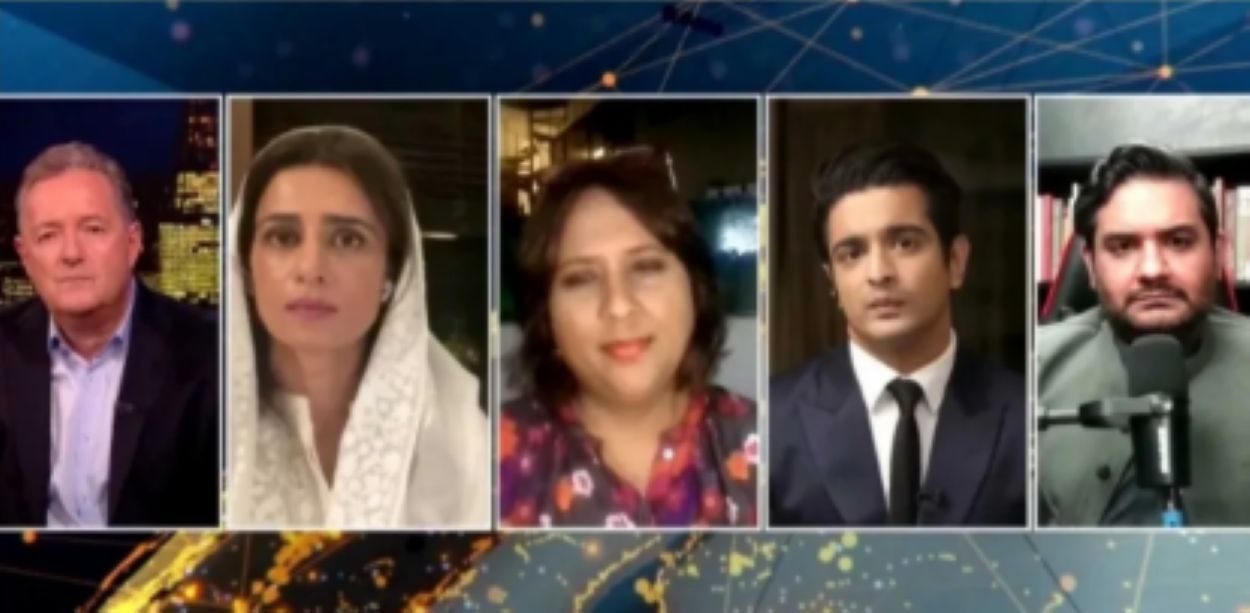A recent Piers Morgan Uncensored episode on India-Pakistan relations, featuring former Pakistani Foreign Minister Hina Rabbani Khar, Indian journalist Barkha Dutt, and podcasters Shehzad Ghias Shaikh and Ranveer Allahbadia (BeerBiceps), ignited controversy for its chaotic mix of diplomacy, media bias, and influencer rhetoric.
Piers Morgan’s Uncensored episode aired amid the 2025 India-Pakistan conflict (Marka-e-Haq). The debate exposed deep-seated tensions, questionable panel choices, and Morgan’s reliance on viral soundbites, drawing sharp criticism on X for trivialising a nuclear rivalry.
Morgan focused the discussion on the conflict that occurred between April 22 and May 10, which resulted in the deaths of 51 Pakistanis and led to the launch of Operation Bunyaan al Marsoos. Khar remained composed during the debate, responding to claims with restraint. In contrast, Dutt’s bold post on X, which falsely alleged an Indian Navy attack on Karachi Port, diminished her credibility.
"I've now figured out why he's called Beer Biceps – because what he said sounds like the most drunk sh*t I've heard in my life."
Watch Piers Morgan's debate on India and Pakistan in full 👇
📺 https://t.co/Qdt5aeDU8q@piersmorgan | @Shehzad89 | @BeerBicepsGuy pic.twitter.com/PZaEwTTQcM
— Piers Morgan Uncensored (@PiersUncensored) May 12, 2025Shaikh challenged India’s RSS-linked attacks, but Allahbadia’s “Pakistan as terror hub” remark and questionable views sparked backlash. Shaikh’s quip, “Why he’s called BeerBiceps,” went viral. X users dubbed the panel a “nightmare blunt rotation,” criticising Morgan’s sensationalist approach.
Piers Morgan Uncensored’s Panel Selection
Morgan’s inclusion of podcasters Shaikh and Allahbadia, introduced as “young influencers,” drew scrutiny for prioritising virality over expertise. A Pakistani comedian, Shaikh, offered some grounded points but shied from naming Indian proxies like the BLA.
At the same time, Allahbadia’s inflammatory rhetoric echoed outdated tropes, which were questioned on X for his lack of geopolitical depth. Dutt’s recycled arguments, like “stop both-siding jihadi terrorism,” felt hollow, especially given her unverified claims. Khar’s diplomatic poise stood out, yet the debate’s format described on X as a “pub brawl” limited substantive dialogue.
The episode highlighted India’s sensitivity to Kashmir mediation and Pakistan’s struggle with internal reflection, amid India’s assertive foreign policy, exemplified by the 2023 Hardeep Singh Nijjar killing in Canada. Both nations’ proxy tensions, India’s alleged TTP/BLA support and Pakistan’s waning pan-Islamism surfaced, but Morgan’s framing reduced complex issues to soundbites.
Social media users criticised the debate’s colonial undertones, with a white host refereeing nuclear neighbours, underscoring the media’s role in shaping divisive narratives.
Morgan’s strategy of amplifying punchy remarks, such as Shaikh’s jab at BeerBiceps, focused more on generating clickbait than on providing meaningful insights. As a result, he failed to challenge Dutt’s misinformation or Allahbadia’s biases.
The aftermath of the debate, analysed across various social media platforms, highlights a wider issue concerning media accountability. Influencers and journalists often blur the lines, potentially distorting important issues. Although it was somewhat overlooked, Khar’s call for evidence-based dialogue serves as a benchmark for future discussions on India-Pakistan relations.






